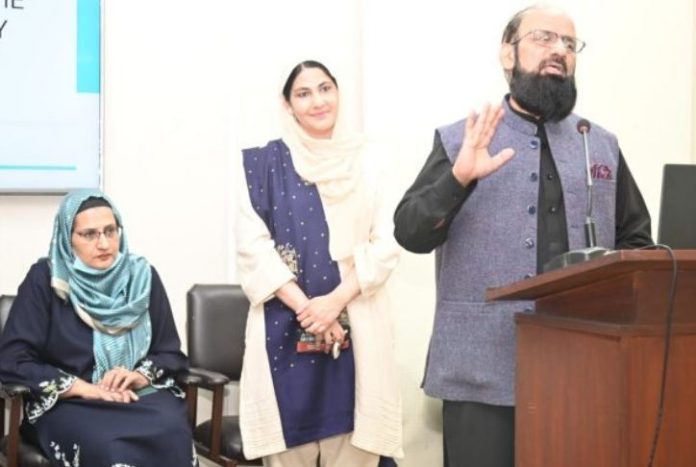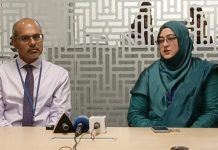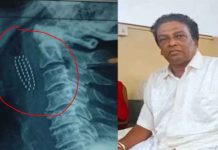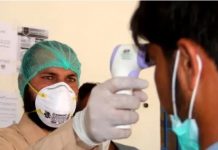LAHORE, Dec 08 (APP/DNA):Fatima Jinnah Medical University (FJMU) Vice Chancellor Professor Khalid Masud Gondal stressed the importance of strengthening the health workforce from a gender equality and health equity perspective to achieve Pakistan’s Sustainable Development Goals (SDGs) related to Universal Health Coverage (UHC).
Speaking at a seminar titled “Advancing Gender Equality, Human Rights, and Health Equity Mainstreaming Across Health Sector in Punjab”, organised by the Directorate General Health Services with the WHO support on Sunday, Professor Gondal highlighted the significance of equipping the health workforce with the necessary knowledge. He stressed that such efforts are critical, especially in primary healthcare services, to address inequalities and ensure inclusive health service delivery.
He further noted the need for multi-sectoral collaboration to tackle social determinants of health, which play a vital role in achieving health equity. Acknowledging WHO’s contributions, Professor Gondal commended the outreach to academia to engage students and faculty for this critical cause.
The event, attended by undergraduate and postgraduate medical students, nursing students, faculty members, and health education teams, was part of the Global 16 Days Campaign of Activism (25 Nov–10 Dec). This campaign raises awareness about human rights, violence against women, the rights of persons with disabilities, and other critical issues like health equity and equality.
Dr. Jamshaid Ahmed, Head of Office WHO Sub Office, highlighted that despite progress over the past decade, nearly half of Pakistan’s population lacks access to essential health services. He underscored the need for gender-responsive, equity-oriented, and human rights-based approaches to meet UHC targets.
WHO Technical Officer Dr. Irfan Ahmed shared data on gender-based violence and its health implications. He pointed out that barriers related to gender inequality, discrimination, and socioeconomic factors disproportionately affect women, people with disabilities, refugees, migrants, and Indigenous Peoples.
Dr. Varda Shafi, an FJMU alumnus based in the UK, emphasized the need to communicate risks to vulnerable groups as part of broader health strategies. She stated that discrimination, poverty, and human rights abuses exacerbate health disparities, limiting access to quality healthcare and worsening health outcomes.
Dr. Arsha Saleem Meer, a broadcast journalist and faculty member at Lahore College for Women University, stressed the importance of systematically addressing root causes of inequality in health policies to ensure no one is left behind. “Pakistan will move closer to ‘Health for All’ when every policy and initiative targets those excluded from the health system,” she said.
The seminar concluded with a call for enhanced capacity-building initiatives for the health workforce, focusing on gender equality and health equity, particularly at the primary healthcare level. The WHO reaffirmed its support to Punjab in advancing these goals to ensure inclusive and equitable health services across the province.
The seminar also featured presentations by WHO officers Dr. Yahya Gulzar and Dr. Irfan Ahmed, Community Medicine Head at FJMU Dr. Taskeen Zahra, District Health Authority HEO Tahira Maryam, and academician Dr. Shehla Akram.

















